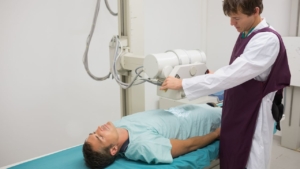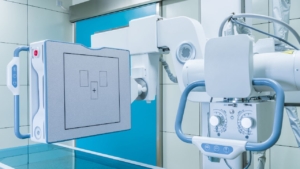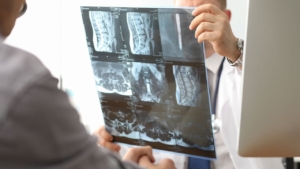Key Takeaways:
- Contrast Media Role: Contrast agents enhance image clarity in medical imaging, enabling accurate diagnosis of diseases and conditions.
- Iodine-Based Contrast: Used primarily in CT scans, iodine-based agents enhance the visibility of blood vessels and organs.
- Gadolinium-Based Contrast: Ideal for MRI, these agents provide superior soft tissue contrast for neurological and oncological imaging.
- Safety Considerations: Careful patient selection, dose optimization, and monitoring are crucial to minimize risks associated with contrast media use.
- Personalized Approaches: Tailoring contrast selection and imaging protocols to individual patient needs improves diagnostic accuracy and patient safety.
Contrast agents play a critical role in enhancing the clarity and accuracy of medical imaging.
From iodine-based contrast media used in CT scans to gadolinium compounds in imaging for MRIs, these substances enable healthcare professionals to visualize complex structures with precision.
This contrast agents guide provides an in-depth look at their applications, differences, and safe use in diagnostic procedures.
The Role of Contrast Media in Medical Imaging
Contrast media in medical imaging are specialized substances injected or ingested to improve the visibility of organs, tissues, and blood vessels.
These agents highlight specific areas of the body, making it easier to identify abnormalities and ensure diagnostic accuracy.
Key applications include:
- CT Imaging Contrast Agents: Iodine-based contrast media enhance the visibility of vascular structures and soft tissues in CT scans.
- MRI Contrast Media Options: Gadolinium compounds improve the clarity of soft tissues, making them ideal for neurological and musculoskeletal imaging.
- Angiography: Both contrast types are used to visualize blood vessels, detect blockages, and evaluate blood flow.
These agents are indispensable for diagnostic imaging agents, ensuring more accurate diagnoses and effective treatment planning.
Iodine-Based Contrast Media in CT Imaging
Iodine-based contrast media are water-soluble agents that are commonly used in CT imaging contrast agents. Their high atomic number allows them to absorb X-rays effectively, producing clearer images of vascular structures and soft tissues.
Features of iodine-based contrast media include:
- High Contrast Capability: Enhances visualization of blood vessels and organs.
- Rapid Distribution: Quickly reaches target areas for efficient imaging.
- Versatile Applications: Suitable for angiography, abdominal scans, and cardiac imaging.
These attributes make iodine-based agents a cornerstone of contrast media in medical imaging, especially for CT procedures.
Gadolinium Compounds in Imaging: MRI Contrast Media
Gadolinium compounds in imaging are essential for MRI contrast media options, providing exceptional soft tissue contrast.
Unlike iodine-based agents, gadolinium interacts with magnetic fields, making it uniquely suited for Magnetic Resonance Imaging.
Advantages of gadolinium-based agents:
- Enhanced Soft Tissue Contrast: Ideal for detecting tumors, lesions, and neurological abnormalities.
- Long Retention Time: Improves image clarity during prolonged scans.
- Fewer Allergic Reactions: Generally well-tolerated compared to iodinated agents.
These compounds are invaluable for diagnostic imaging agents, offering unmatched detail for specific conditions.
Iodinated Contrast Vs. Gadolinium: Key Differences
Understanding the differences between iodinated contrast vs. gadolinium helps healthcare providers select the appropriate agent based on the imaging modality and clinical need.
Key comparisons include:
- Imaging Modality: Iodinated contrast is primarily used in CT scans, while gadolinium is used in MRI.
- Mechanism of Action: Iodinated agents absorb X-rays, while gadolinium interacts with magnetic fields.
- Applications: Iodine is ideal for vascular and organ imaging, whereas gadolinium excels in soft tissue and neurological imaging.
Choosing the right contrast agent is crucial for optimizing diagnostic imaging agents and achieving accurate results.
Safe Use of Contrast Media in Medical Imaging
Ensuring the safe use of contrast media is vital for both patients and healthcare providers. Adverse reactions to contrast agents are rare but can include allergic responses or nephrotoxicity.
Best practices for safety include:
- Patient Screening: Assess for allergies, kidney function, and other contraindications.
- Hydration Protocols: Encourage fluid intake before and after contrast use to reduce kidney strain.
- Dose Monitoring: Use the minimum effective dose for the imaging procedure.
These precautions help healthcare providers maximize the benefits of contrast media in medical imaging while minimizing risks.
Gadolinium-Based Contrast Agents: Transforming MRI Imaging
Gadolinium-based contrast agents are widely recognized for their ability to enhance contrast-enhanced MRI imaging. These agents improve visibility in soft tissue structures and neurological studies, making them indispensable in modern radiology.
Key features of gadolinium-based contrast agents include:
- Magnetic Properties: Gadolinium’s unique ability to interact with magnetic fields enhances image clarity in MRI scans.
- Soft Tissue Contrast: Ideal for visualizing neurological conditions, tumors, and musculoskeletal abnormalities.
- Rapid Clearance: These agents are processed efficiently by the body, reducing the likelihood of prolonged retention.
The reliability and versatility of gadolinium-based contrast agents have revolutionized contrast-enhanced MRI, offering unmatched precision for diagnosing complex conditions.
Optimize Contrast Media Selection for Diagnostic Imaging
Choosing the right contrast agent is crucial for accurate diagnostics and patient safety. The decision between iodine-based contrast media and gadolinium compounds in imaging depends on the imaging modality and clinical requirements.
Factors influencing contrast media selection include:
- Imaging modality: CT imaging contrast agents typically use iodinated media, while MRI relies on gadolinium-based compounds.
- Clinical focus: Gadolinium is ideal for soft tissue and neurological imaging, while iodine-based agents excel in vascular and organ diagnostics.
- Patient conditions: Considerations like kidney function, allergy history, and overall health guide the selection process.
A tailored approach ensures optimal imaging results while minimizing risks for each patient.
Address Safety Concerns with Contrast Media
Patient safety is a top priority in contrast media in medical imaging, and proactive measures help reduce potential risks associated with these agents.
Safety protocols include:
- Conducting pre-procedure kidney function tests to assess risks, especially with iodinated media.
- Educating patients about potential side effects, including mild reactions like nausea or rare severe complications.
- Using advanced techniques like dose reduction to minimize exposure during imaging.
These measures ensure a balance between diagnostic accuracy and patient well-being.
Improve Patient Care with Personalized Imaging Solutions
Personalized approaches to imaging enhance both diagnostic accuracy and patient satisfaction. By tailoring contrast media selection and imaging protocols, healthcare providers can address individual needs effectively.
Personalized solutions include:
- Adjusting the type and dosage of contrast media based on patient-specific factors like body weight and medical history.
- Using alternative imaging methods for patients unable to tolerate certain contrast agents.
- Implementing robust follow-up procedures to monitor patient responses post-imaging.
These efforts ensure high-quality care and build trust in the diagnostic process.
Discover Advanced Contrast Media Solutions for Accurate Diagnostics
Enhance your imaging capabilities with tailored solutions for iodine-based contrast media and gadolinium compounds in imaging.
Ensure precise diagnostics and prioritize patient safety with expert tools and guidance. Call Spectrum Medical Imaging Co. today at 800-859-6162 to explore our comprehensive range of contrast media solutions!




